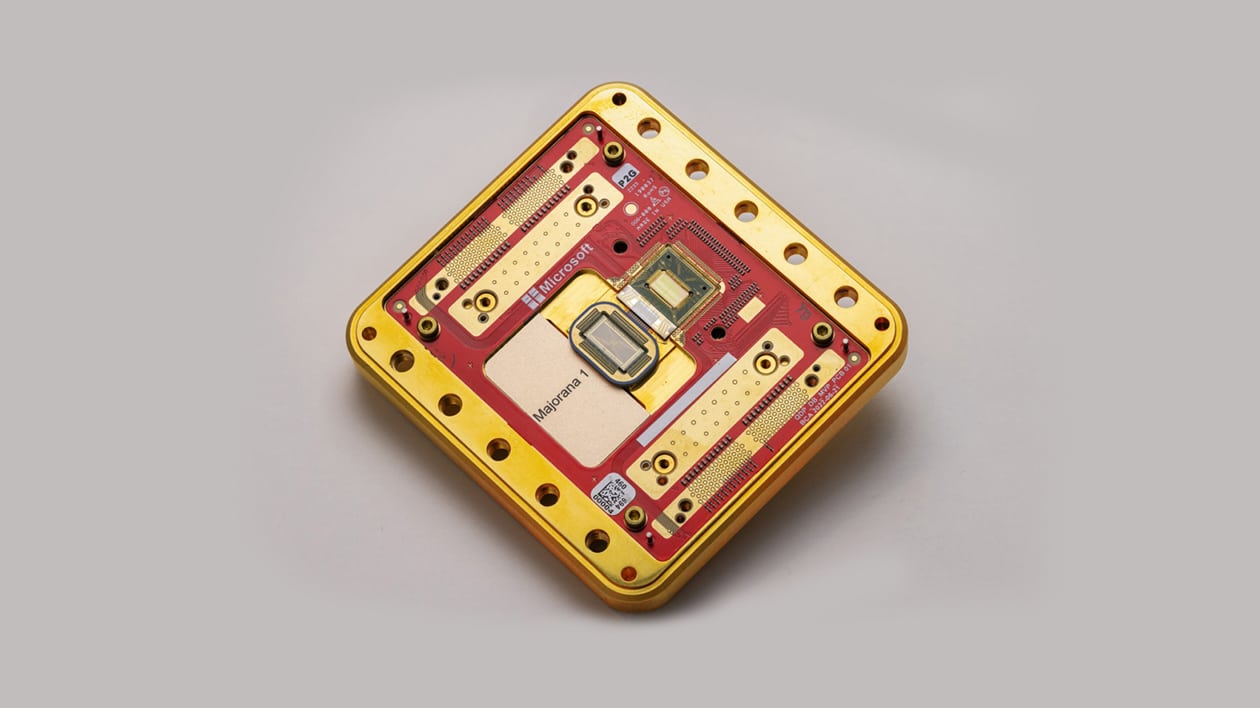Microsoft Unveils Majorana 1 Chipset Breakthrough

Microsoft has made a significant announcement regarding its advancements in quantum computing. On Wednesday, the tech giant revealed the development of the Majorana 1 chipset. This innovation marks a pivotal moment in the field of quantum technology. After 17 years of extensive research into new materials and architectures, Microsoft claims to have created the world’s first ‘topoconductor.’ This unique material exists in a state beyond solids, liquids, and gases, allowing it to observe and control Majorana particles. The company believes this breakthrough could pave the way for scalable and error-resistant quantum computers. Notably, the Majorana 1 processor can accommodate up to one million qubits on a single chip, a feat that could revolutionize computing as we know it.
Understanding Quantum Computing
To appreciate the significance of the Majorana 1 processor, it is essential to understand the fundamentals of quantum computing. Traditional computers, such as desktops and laptops, are classified as classical computers. They rely on tiny transistors within their chipsets, known as bits. These bits can exist in either an on or off state, processing information sequentially. Imagine a library where each book represents a piece of information. Classical computers read one book at a time, making the process slow, especially for complex tasks. To speed things up, engineers fit multiple transistors into a computer, enabling parallel processing. This is how supercomputers are created, combining thousands of processors to tackle demanding computations.
In contrast, quantum computers operate on a different principle. Instead of bits, they utilize quantum bits, or qubits. These qubits are made from special quantum materials, such as superconductors or trapped atoms, and they adhere to the principles of quantum physics, particularly superposition. This means that unlike classical bits, qubits can exist in states of on, off, or both simultaneously. This unique property allows quantum computers to process vast amounts of data concurrently. Returning to the library analogy, quantum computers can open all the books at once, drastically reducing the time needed to find information. However, despite their immense potential, qubits face a significant challenge: stability. They are highly sensitive to their environment, and even minor fluctuations can lead to errors in processing. This sensitivity is one reason why quantum computing has not yet been widely adopted in commercial or research settings.
Can Microsoft’s Majorana 1 Chipset Solve Quantum Computing’s Stability Issue?
Microsoft has positioned the Majorana 1 chipset as the world’s first topological quantum processor. This designation refers to a topological state of matter, characterized by global properties of its wavefunction that remain unchanged under continuous deformations. This resilience allows the Majorana 1 chipset to resist external environmental impacts, a crucial factor in the quest for stable quantum computing.
The Majorana 1 chipset is built on a new topological core architecture. It has the remarkable ability to accommodate up to one million qubits on a chip small enough to fit in the palm of your hand. Unlike traditional quantum processors that rely on electrons, the Majorana 1 chipset utilizes Majorana particles. These exotic particles, first theorized by physicist Ettore Majorana in 1937, are unique because they act as their own antiparticles. Majorana particles exist within topological superconductors, meaning that while the bulk of the material remains superconducting, the surface or edge states are protected from disorder and impurities. This property is vital for creating more robust qubits, potentially reducing the need for complex error correction mechanisms.
Microsoft’s goal is to leverage these unique characteristics to develop scalable and reliable quantum processors. However, it is important to note that this is still an early stage in the development process. The company will need to design and build the topological qubits before realizing the full potential of the Majorana 1 chipset.
Competition in Quantum Computing Innovation
Microsoft is not alone in its pursuit of advancements in quantum computing. Several other tech companies are also exploring innovative solutions to the challenges posed by quantum technology. For instance, Google is working on its Willow chip, which employs superconducting transmons in its Sycamore processors. This approach aims to enhance the efficiency and performance of quantum computations.
Additionally, IonQ, a Maryland-based quantum computing company, is developing trapped-ion technology. This method offers low coherence times, although it comes with slower gate speeds. Other notable players in the quantum computing arena include IBM and D-Wave, both of which are actively researching and developing solutions to improve quantum computing capabilities.
As the race for quantum supremacy continues, the advancements made by Microsoft with the Majorana 1 chipset could play a crucial role in shaping the future of this technology. The potential for scalable and error-resistant quantum computers is immense, and the implications for various industries could be transformative. As research progresses, it will be fascinating to see how these innovations unfold and contribute to the broader landscape of quantum computing.
Observer Voice is the one stop site for National, International news, Sports, Editor’s Choice, Art/culture contents, Quotes and much more. We also cover historical contents. Historical contents includes World History, Indian History, and what happened today. The website also covers Entertainment across the India and World.
Follow Us on Twitter, Instagram, Facebook, & LinkedIn

